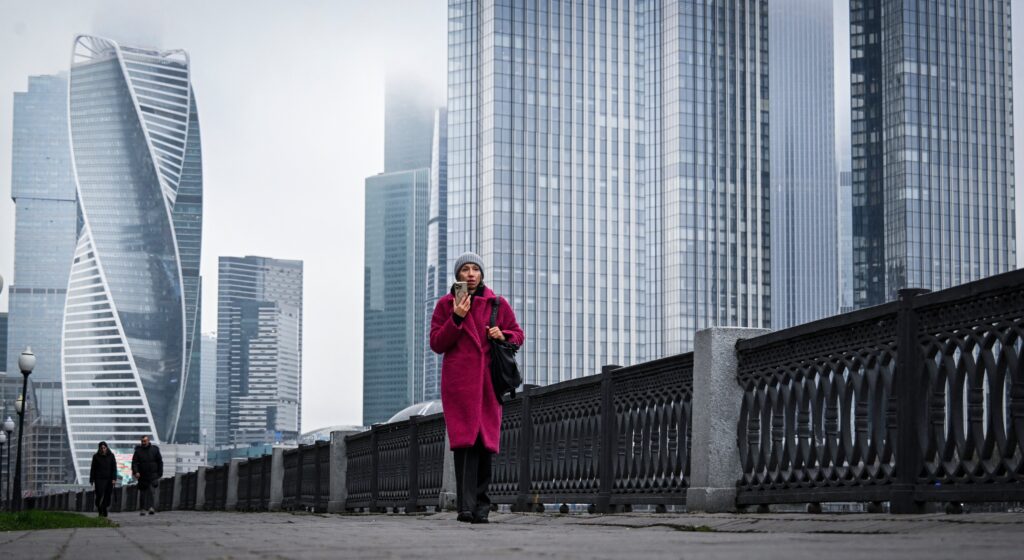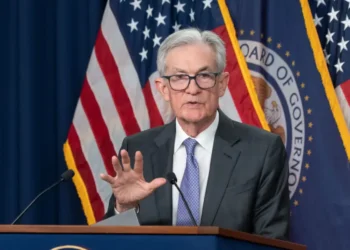ST. PETERSBURG — When Russian authorities implemented a major internet blackout in St. Petersburg back in June, 26-year-old Ivan went to tap his debit card to pay for items in a shop. It failed. No one in Russia’s second-largest city could call taxis or order deliveries, and small businesses lost the day’s earnings before the internet was finally turned back on.
ST. PETERSBURG — When Russian authorities implemented a major internet blackout in St. Petersburg back in June, 26-year-old Ivan went to tap his debit card to pay for items in a shop. It failed. No one in Russia’s second-largest city could call taxis or order deliveries, and small businesses lost the day’s earnings before the internet was finally turned back on.
It turned out to be a sign of things to come.
“Literally, you want to buy food, but you can’t do it because the cards don’t work,” said Ivan, a history teacher. Now he always carries cash because mobile data can be blocked in the city at any time — as happened again Tuesday in St. Petersburg and across much of the country. He spoke on the condition his last name not be used for fear of official retaliation.
According to Runet Monitor, which tracks the state of connectivity in Russia, 57 regions across the country reported mobile internet cuts Tuesday, and on any given day, dozens of areas are affected. Authorities have justified the cuts as a way to avert attacks by Ukrainian drones, which have been known to use local mobile networks for guidance. One Russian region, Ulyanovsk, home to military-linked factories, said this week that mobile data would be blocked until the end of the war.
The constant cuts in mobile internet are the latest way Russia’s population is feeling the effects of nearly four years of full-scale war with Ukraine, but also come on top of measures to restrict Russia’s internet and convert a once-raucous online world into what many are calling a “digital gulag,” as repressive as those in China or Iran.
Residents in St. Petersburg said the restrictions can cause chaos, scrambling taxis and transport and stopping card machines, but war-fatigued Russians have learned to shrug and get on with things, adapting to a world that is often without the online conveniences so many other countries take for granted.
In fact, Roskomnadzor, the internet control agency, tried this week to promote the joys of life without internet, posting a cartoon of a grinning man walking in the park with a book under his arm instead of hunching anxiously in a messy apartment. The caption said “turning off WiFi doesn’t mean losing connection. Sometimes it means finding connection with yourself.”
One irate customer, Alexei Michurin, responded to the cartoon online, “You’d better cut off your own internet and stop posting, but don’t take away our last joy, and for some people, their whole life.”
With the first restrictions in 2022, people reacted with “horror, rage, rejection, something needs to be done,” said Ivan. “And now, Roskomnadzor can officially do anything with your internet traffic. Well, that’s how we live.”
The bans began with Facebook and Instagram after the 2022 invasion and moved on to throttling the very popular YouTube starting in the summer of 2024, then this past August restricting WhatsApp and Telegram calls.
“Of course, people are mad. They are not happy with what’s happening with the internet,” said Mikhail Klimarev, Berlin-based executive director of the Internet Protection Society. “People are very unhappy and infuriated. But people will not protest, just because it makes no sense. If you do, you will be beaten up and then you will be put in jail.”
Opposition politician Boris Nadezhdin said that with no power to do anything about it, the only choice was to adjust to the situation, as he has.
Nadezhdin often travels thousands of miles on road trips to meet Russian voters. On a recent journey across more than 10 regions, covering nearly 2,000 miles, he often couldn’t find his destinations because the signal was so frequently blocked.
“I drove by the sun. I knew I had to go south, so I drove toward the sun. I drive a lot. In most cities, navigation does not work and cell service periodically goes out.”
He said that increasingly, people just adapt rather than trying to change the situation. “The reaction to restrictions of internet is not to struggle, to become political; instead, people are trying to find ways around it, using various tricks to address the consequences and not the problem itself.”
Another way Nadezhdin copes is by carrying several phones, because “in some regions, one operator’s connection is better, and in others, a different operator’s connection is better.” It also gives him a way of dealing with the increasingly mandatory state-controlled national messaging app, Max. The service has no end-to-end encryption but is needed to access any state service, so he restricts the app to just one phone.
“Max has a very bad reputation. People say that with the help of Max, the authorities can follow you, can see what you write, can listen to what you say,” he said.
The government, meanwhile, said Wednesday that all the building chat groups that residents use to communicate must be transferred to Max by year’s end. There are an estimated million such chat groups among the tenants of all the apartment buildings in the country.
Although public criticism of the internet cuts has been muted, polling suggests significant annoyance among Russians. A Sept. 2 survey by the independent polling agency Levada Center found that 71 percent of respondents had experienced mobile internet outages and 63 percent had experienced blockages of messenger apps, with around half reporting it made their lives more difficult.
A survey by the state-owned VCIOM polling agency found that opposition to restrictions on foreign platforms and applications was particularly pronounced among younger Russians, with 68 percent of respondents born between 1992 and 2000 opposed and 58 percent of those born after 2001 opposed. The only age groups in which a majority favored restrictions were born before 1967.
One of the few places where it is possible to witness societal ire at the restrictions has actually been on Roskomnadzor’s social media page at VKontakte, Russia’s equivalent of Facebook.
“Happy Hunger Games, Russians,” wrote Nadya Toshenko. “The banks aren’t working, I can’t do anything at work, so why should I connect WiFi in my apartment? Every day I am more and more surprised at how it is possible to hate people so much.”
“How long can you mock people? You have forbidden us to speak, watch, and listen,” posted another user, Katerina Gavrilina. “You have no right to restrict our access to information. It is written in the Russian Constitution! Enough is enough!”
Ultimately, the purpose of all these measures is to control people and prevent them from uniting, said Anastasia Burakova of Kovcheg, an organization that supports those forced to flee the country because of the war.
“It’s a kind of game when a dictatorship tries to have more and more restrictions in more and more spheres, and people learn how to avoid it. So it will be a process that will never end, a bit like in Soviet times,” she said. The object is “to create this feeling of total fear, as any dictatorship does.”
In the past, Russia implemented “black bans” — blocking thousands of websites associated with opposition figures, activists or other unapproved activity, according to a July report by Human Rights Watch. Now Russia is increasingly shifting to “white lists” — strictly limited lists of government-approved sites that Russians may access, with other sites blocked.
The next step could be banning virtual private networks, or VPNs, which can be used to bypass restrictions on internet and individual sites. Individual VPNs have been blocked, and advertising them is illegal, but there is not yet a blanket ban.
Klimarev of the Internet Protection Society, however, thinks it would be a step too far for Russia and too disruptive for trade and the economy to totally ban VPNs and draw up “white lists” of approved websites.
“They will have to stop all external contacts and technical contacts because, otherwise, it will not be possible to do it. If Russia is going that way, and if it introduces all of that, then it will be Soviet Union 2.0, and nobody wants that because this will be a completely closed country.”
Dixon and Abbakumova reported from Riga, Latvia.
The post Russians confront wartime internet cuts with public shrug, private fury
appeared first on Washington Post.




